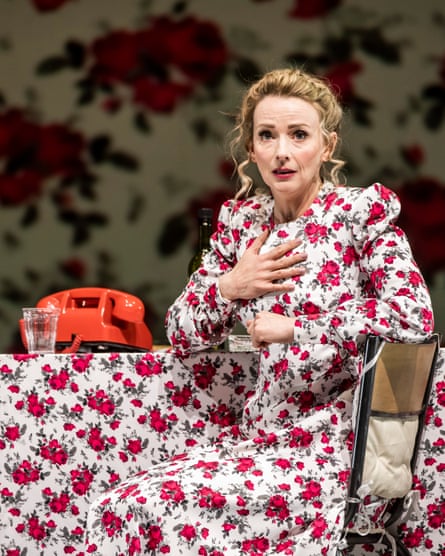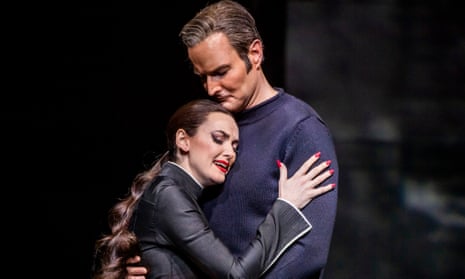‘We watch ourselves grow old in mirrors. They bring us closer to death,” Jean Cocteau wrote of his 1950 film Orphée, the screenplay for which forms the libretto for Philip Glass’s 1993 opera of the same name, now taken into English National Opera’s repertory, in a new production by Netia Jones, as the final instalment of the company’s Orpheus series.
The film and opera are ambivalent parables about the metaphysical nature of creativity and artistic immortality, and in each, mirrors are doorways to a world beyond the grave that constantly impinges on the living, allowing the Princess, the emissary of death, to fall in love with Orphée and seek to claim him as her own. Both works are also, to some extent, bittersweet reflections on loss and transience. In his memoir Words Without Music, extracts from which are printed in the programme, Glass reflects on how he was drawn to the film following the death of his partner, Candy Jernigan, in 1991. Cocteau’s screenplay, meanwhile, is haunted by the memory of one of his lovers, the novelist Raymond Radiguet, who died aged only 20, and who hovers over two of the work’s principal characters: Cégeste, the tearaway writer killed too soon who later dictates Orphée’s poetry to him over the radio; and the angelic Heurtebise, the Princess’s chauffeur, who is in love with Orphée’s wife Eurydice and is selflessly guiding human destiny at every turn.
Jones draws these complex threads together in a staging that takes the film as its point of departure, but steers its imagery into new territory.

Digital clocks tick away the minutes and take us backwards and forwards in time. Video projections allow us to see the doomed Cégeste’s body falling slowly through space and the enigmatic texts he later dictates unfurling across the screens of Lizzie Clachan’s set. Instead of inviting Nicholas Lester’s Orphée into her Rolls-Royce, Jennifer France’s Princess – looking every bit as svelte as Cocteau’s María Casares – takes him to a recording studio, where the pair of them dub the corresponding scene from the film. A street artist spray paints one of Cocteau’s erotic drawings across a wall, and Einstein, in a nod to Glass’s own Einstein on the Beach, can be found among the souls wandering in the underworld. It’s a beautiful, troubling piece of theatre that more than holds its own beside ENO’s previous Glass stagings, Satyagraha and Akhnaten, which rank among the company’s finest achievements in recent years.
The score, with its throbbing rhythms, looping figurations and elegant vocal writing doesn’t, however, have the impact and drive of his earlier operas, and the tension occasionally dips in the second act. It’s conducted with impeccable grace, though, by Geoffrey Paterson, while the playing has a wonderful clarity and warmth, tacitly reminding us that Glass studied with Nadia Boulanger in Paris, and that the influence of French music on his own has been strong. The excellent cast is dominated by France, by turns glacial, gloriously imperious and exquisite as the Princess. Lester makes a handsome sounding, if not always sympathetic Orphée. Anthony Gregory is the sullen, attractive Cégeste, and Nicky Spence is in fine voice as Heurtebise, wooing Sarah Tynan’s put upon, fretful Eurydice with restrained ardour. It all adds up to stylish, at times disquieting entertainment, beautifully done.

Comments (…)
Sign in or create your Guardian account to join the discussion